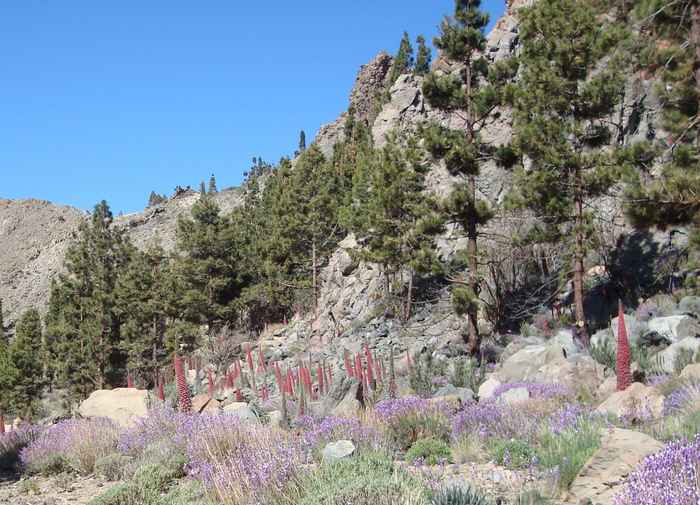Biogeography and Macroecology

Members of the Biogeography & Macroecology (BIOMAC) lab study the distribution of life on Earth by integrating knowledge of the ecology of species with evolutionary history and information on the geography, geology, geomorphology, and climate of the Earth. Central to this research theme is how the biotic and abiotic components of the Earth system vary across space and time, how they interact, and how responses of biodiversity to changing environmental conditions can be predicted. The BIOMAC lab is also strongly involved in using remote sensing and digital sensors for measuring and monitoring biodiversity change.
Research questions
Our research focuses on quantifying spatial and temporal variation in biotic and abiotic components of the Earth system. We address this research with a number of research projects and research themes. We ask questions such as:
What are the fundamental drivers and determinants of species distributions and biodiversity patterns from local to continental and global scales?
How do species distributions, functional traits, biotic interactions, ecosystems, and aspects of geodiversity vary across space and time?
What are the effects of current and future global change on biodiversity, protected areas, ecosystem services and human well-being?
Staff
Research staff
Postdoctoral Researchers
PhD candidates
Research assistants and data scientists
Research projects
Some examples of the projects where we have a leading role include
- ARISE (Authoritative and Rapid Identification System for Essential biodiversity information). A 10-year large-scale research infrastructure project funded by the Dutch Research Council (NWO) under their National Roadmap (2020–2030). The aim is to deliver a unique end-to-end infrastructure for the interpretation of evidence of the occurrence of species from digital sensors (including cameras, sound devices and radar) and eDNA.
- EuropaBON (Europa Biodiversity Observation Network: integrating data streams to support policy). A Horizon 2020 coordination and support action funded by the European Commission (2020–2023). The aim is to co-design the future EU-wide biodiversity observation network.
- LifeWatch Virtual Laboratory Innovation Center (LW-VLIC), the Netherlands. Funded by LifeWatch-ERIC, a European Research Infrastructure Consortium with focus on biodiversity and ecosystem research (2020-2023). The aim is to develop workflows, data products, and virtual labs for applications in ecology and biodiversity science, with a focus on LiDAR, remote sensing and Essential Biodiversity Variables (EBVs).
- LTER-LIFE (Digital Twins of ecosystems in a changing world). A 10-year large-scale research infrastructure funded by the Dutch Research Council (NWO) under their National Roadmap (2023–2033). This new e-infrastructure will allow us to build digital twins of ecosystems and to study and predict how changes in climate and other human-induced pressures affect ecosystems and biodiversity.
- MAMBO (Modern approaches to the monitoring of biodiversity). A Horizon Europe research and innovation action funded by the European Commission (2022–2026). Our main task is to automate the execution of workflows for habitat condition metrics from LiDAR and drone imagery for EU habitat monitoring.
- RIVAGE (Revisit Island Vulnerability during the Anthropocene Geologic Era). A working group funded by the French Foundation for Research on Biodiversity (FRB) through the Centre for the Synthesis and Analysis of Biodiversity (CESAB) (2023–2026). The aim is to assess the vulnerability of insular assemblages (birds, plants, and mammals) to climate change, land use change and biological invasions, taking into account multiple facets of diversity.
- Vulnerability of Arctic migratory birds to rapid climate change. Funded by the Dutch Research Council (NWO) under the Netherlands Polar Programme policy-driven call (2021–2025). The aim is to integrate existing and novel bird data at individual and population level with state-of-the-art climate model simulations and vegetation modelling to assess the vulnerability of arctic migrants to rapid climate change.
- Energy and nutrient budget of the nature reserve Oostvaardersplassen. Funded by the Ministry of Agriculture, Fisheries and Nature (LNV) and the Dutch Province of Flevoland. The research project is the “Nature Research Oostvaardersplassen” component part of the Spatial Planning of National Park Nieuwland research project. The aim is to investigate the dynamics of the nutrient and energy fluxes in the Oostvaardersplassen and how trophic interactions between soil organisms, biomass production and grazing regime influence these budgets.
Master's research projects
Some examples of the master’s thesis topics we had in the past:
- Identifying fine-scale habitat preferences of threatened butterflies using airborne laser scanning. Jan Peter Reinier de Vries . Supervisor Daniel Kissling. Thesis results published in journal Diversity and Distributions: https://onlinelibrary.wiley.com/doi/10.1111/ddi.13272
- Integration and harmonization of trait data from plant individuals across heterogeneous sources. Tim Lenters. Supervisor Daniel Kissling. Thesis results published in journal Ecological Informatics: https://www.sciencedirect.com/science/article/pii/S1574954120301564
- The role of elections as drivers of tropical deforestation. Joeri Morpurgo. Supervisor Daniel Kissling. Thesis results published in journal Biological Conservation: https://www.sciencedirect.com/science/article/pii/S0006320722003858
- Predicting and Mapping Grassland Above Ground Biomass using Hand-held LiDAR. Jeroen de Nobel . Supervisors Kenneth Rijsdijk and Harry Seijmonsbergen. Thesis results are published in Remote Sensing: https://doi.org/10.3390/rs15071754
- A quantitative assessment of geodiversity and human influence in geoparks. Emma Polman. Supervisor and Harry Seijmonsbergen. Thesis results submitted to Philosophical Transactions Royal Society A. Data available at: https://doi.org/10.21942/uva.23496923
Other research areas: